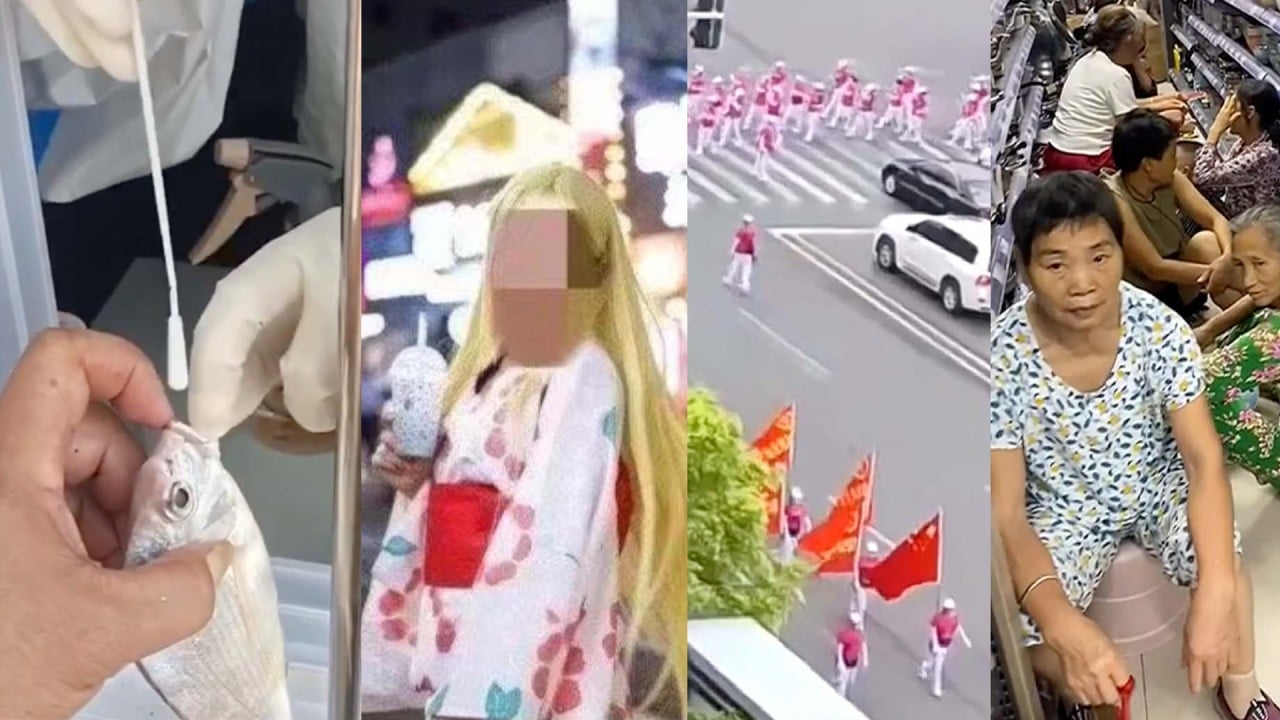The original clause – “producing, disseminating, propagating or spreading articles or remarks that are harmful to the spirit or the feelings of the Chinese nation” – has been removed from the article.
In the first proposed draft amendment released in September, the clause stipulated six acts that could attract up to 15 days in detention, including “wearing, displaying or decorating in public places, or forcing others to wear, display or decorate, clothing or symbols that are harmful to the spirit or the feelings of the Chinese nation”.
The phrases “harmful to the spirit of the Chinese nation” and “hurting the feelings of the Chinese nation” in the previous version of Article 34 were dropped, Shen Chunyao, deputy chairman of the NPC constitution and law committee, said on Tuesday.
The phrasing was subjective, with potential for misinterpretation, which would make it “difficult to define its meaning in legislation and hard to grasp in law enforcement”, Shen was quoted as saying by Communist Party mouthpiece People’s Daily.
“There is concern that law enforcement may infringe upon the legitimate rights and normal life of the public. Considering various factors and law enforcement needs, this draft revision will not use this expression any more.”
The clause regarding dress has been amended to: “wearing, displaying, or decorating in public places or forcing others to wear, display or decorate clothing or symbols that promote or glorify aggressive war or aggressive behaviour, causing a negative social impact”.
Observers said the revisions were a positive sign.
“It is truly heartening to witness the National People’s Congress taking the citizens’ opinions on Article 34 into serious consideration and opting to eliminate vague and overly broad language from the article,” said Liu Sida, a law and sociology professor at the University of Hong Kong.
“It is undeniable that the thoughtful input from legal scholars and ordinary citizens has had an impact on the lawmaking process. This development is a hopeful sign of China’s ongoing legal transformation.”
Liu said a key aspect of lawmaking involved minimising ambiguity, as unclear legal text could lead to excessive or even ill-intentioned interpretations during law enforcement.
“This is particularly significant for laws concerning personal liberty, such as the Public Security Administration Punishments Law.”
According to the NPC website, a total of 93,975 people submitted 125,962 opinions on the first draft amendment during September.
A Shanghai-based lawyer said the revision could help prevent abuse of administrative power and reduce situations in which personal freedoms were compromised by government enforcement.
By removing vague and contentious language, the law’s intentions on administrative penalties could be made clearer, which would be a positive development, she said.
This law does not consider violations to be crimes but offenders face fines, detention and a public record, which could affect their future education and job prospects.
Lawyers and observers had raised concerns that the proposed Article 34 could fuel extreme nationalism, potentially creating an environment in which using vague phrases such as “harmful to the Chinese nation’s spirit” could be applied to suppress dissent and justify discrimination.
“This article should not be passed at all [in the first place] because ‘detriment to the spirit or feelings of the Chinese nation’ is ambiguous and usually connected to personal behaviours that do not cause actual harm to anyone else, and hence should only be judged by moral norms instead of by written regulations backed up by government power,” a Beijing-based lawyer said, requesting anonymity because of the sensitivity of the issue.
Critics have pointed to a few worrying episodes regarding growing nationalistic sentiment in China.
Although the firm was not subjected to police action, some nationalist groups launched a campaign against the firm, accusing it of “betraying the nation” and “hurting national interests”. The company has also been accused of being too focused on profits and not doing enough to ensure water security in China.






:quality(85):upscale()/2025/02/12/709/n/43463692/affdf68367acc608c50d79.20958537_.png)

